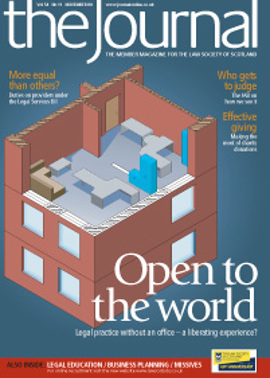Reality on the West Bank
Fraser Ritchie is disingenuous in responding to my critique (Journal, September) of his original article (June) describing the situation in the Occupied Palestinian West Bank.
- In quoting the UN figure of 38% of the OPT being occupied by Israeli settlements and their infrastructure Mr Ritchie misleads your readers. The figure includes Area C which at present is under Israeli control in accordance with the Israel-Palestinian Interim Agreement. He ignores that in Final Status Negotiations in 2000, Israel offered to return all but 5% of the OPT and the balance in a land exchange.
- Mr Ritchie misguidedly asserts that there are “600 physical objects blocking Palestinian movement in the OPT”. Official Israeli Army sources have informed me that there are currently only 14 permanent checkpoints in the territory. Additional mobile checkpoints are erected on receipt of live intelligence, their number dependent on the level of the threat.
- Your correspondent repeats Israel’s purported breach of the Geneva Convention without relating to my demonstration that Israel has a legal justification for its presence in the West Bank based on the Treaty of Sèvres, the Palestine Mandate and article 80 of the UN Charter.
- Similarly, in reiterating the ICJ opinion as being the basis for the illegality of the Fence, Mr Ritchie ignores my arguments that the opinion, being advisory, not only lacks binding effect, but is also so defective in its reasoning as to have little, if any, persuasive weight for serious scholars of international law. It does of course have great propaganda value among the uneducated.
- Finally, Mr Ritchie asks whether I have ever visited the OPT and seen there the humanitarian impact of the settlements. Yes! For over 15 years I acted as the senior legal adviser to Israel’s national electricity company and saw directly the effect which our supply, service and support had and still has on Palestinian daily life.
- Mr Ritchie gives lip service to Israel’s right to defend itself. He probably has never experienced being close to the receiving end of a terrorist attack. I have!! Had the Palestinian Police fulfilled their security obligations under Oslo II, both before and after 2000, there would have been little or no need for the anti-terrorist barrier and the constraints imposed on Palestinian movement.
Gerald M Adler, LLM, JSD, Hove and Haifa
For a legal journal to publish views such as those expressed by Fraser Ritchie (Journal, October, 10) seems to devalue the status of the profession. No proof of the claims made appear anywhere in the letter.
He interprets the Fourth Geneva Convention and the International Court of Justice in a very superficial way in order to meet his own prejudged conclusions and contradicting eminent authorities on international law.
Much of the information is either out of date or untrue. For example according to the Palestinian register of births and deaths, the number of children entering the school system and the emigration figures, the population of the West Bank is 1.9 million, not 2.4 million.
Secondly, at time of writing, there are only 14 permanent physical road blocks operating. Yes, there are occasions when others are added on a temporary basis in response to intelligence but even these occurrences are getting less as the Palestinian Authority is taking greater control.
I should also point out that the Palestinian economy is growing at a rate (over 7%) which makes many countries around the world envious, investment is flowing and there are now renewed plans for establishing industrial parks to advance the economy further.
Stuart Palmer, Newcastle on Tyne and Haifa
Mr Ritchie writes: “The United Nations and every member state, except Israel, have always regarded Israeli settlements in the oPt as illegal.” It is worth pointing out that UN Resolution 242 (1967) requires only that the Israeli army leave the West Bank, not Israelis and certainly not Jews, and that it calls upon the Israeli army to vacate the area only as part of a wider, comprehensive peace between Israel and its Arab adversaries.
Professor Geoffrey Alderman, DLitt (Oxon), University of Buckingham
In this issue
- The equality, diversity and discrimination agenda: change and challenge ahead
- Justice on the green front
- Let the light in
- Needs of the family
- Reality on the West Bank
- Outside of the box
- Effective philanthropy
- Case for the defence
- Taking on the system
- Same rules for all?
- The benchmark
- Law reform update
- From the Brussels Office
- Appreciation: David Hector MacNeill
- Halfway to the Big Bang
- The same but different
- Five steps forward
- Ask Ash
- Preparing for disaster
- Rules a-changing
- Fair competition
- Time on whose side?
- 40 days and 40 nights
- Hear the grown-ups
- Problems of transition
- Scottish Solicitors' Discipline Tribunal
- Website review
- Book reviews
- Life on the other side
- Never waste a good crisis






